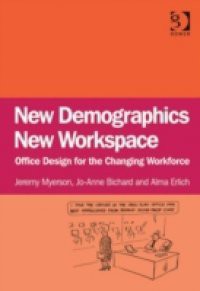Offices shape the lives of millions of people. How we plan, design and equip them says a great deal about the culture of organisations, the mentality of managers and the motivations of staff. But getting the right balance between management efficiency and individual wellbeing is as elusive as ever. New Demographics New Workspace looks for answers in some new places.The authors address ways in which the office environment can be redesigned to offer greater levels of comfort, flexibility and fitness for purpose in the new age of the older knowledge worker. Based on the findings of the authors 'Welcoming Workplace' research project at the Royal College of Art Helen Hamlyn Centre, New Demographics New Workspace examines the impact of two of the most significant shifts in the workplace: the ageing of the workforce and the changing nature of work itself in the knowledge economy.By examining the movements and motivations of older knowledge workers in the UK, Japan and Australia, the authors have generated new conceptual approaches to office design that offer an alternative to the current outdated model derived from the factory floor. In particular they question the value of open-plan offices that favour collaboration over concentration and contemplation. Given the growing pensions crisis and anticipated knowledge gap in the workforce in many developed countries, this book has real political, economic and social resonance. If we are all going to have extended working lives in the 21st century, the places in which we work will need to flex and adapt to make us want to keep on working.

